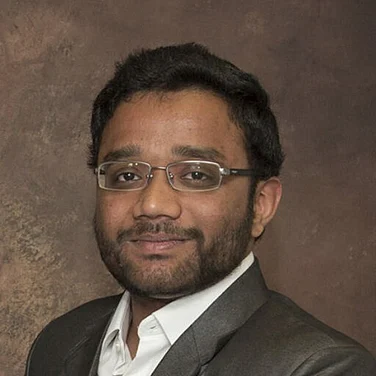In an era where artificial intelligence is reshaping the digital landscape, one name stands out in the realm of search technology: Vinay Venkatesh. As an AI/ML specialist at Google, Venkatesh is spearheading advancements in Local Search through the application of cutting-edge AI and Large Language Models (LLMs). His innovative leadership and methodologies are not only transforming how millions interact with local businesses through Google Search but are also setting new benchmarks in the field of AI-assisted search ranking.
We had the opportunity to sit down with Vinay Venkatesh to discuss the transformative power of AI in search technology, his groundbreaking work at Google, and his vision for the future of digital interactions.
Q: As a leading AI/ML specialist at Google, how do you see AI reshaping traditional search models?
Venkatesh: AI is fundamentally transforming how we approach search. Traditional models were based on keyword matching and link analysis, but AI allows us to understand user intent at a much deeper level. We're now able to process and analyze vast amounts of data in real-time, uncovering patterns and trends that were previously unattainable. This enables us to provide more accurate, relevant, and personalized search results. For example, in Local Search, our AI models help ensure that users are well-connected to small and local businesses around them for their everyday needs. These enhanced models and AI algorithms we developed over the year were able to increase the commerciality across 37 million queries globally every week with 4 million weekly queries across India and about 2 million weekly queries across the US. This directly impacts revenue for businesses and services that show up as results for all such user queries. Whether someone is looking for a restaurant, dentist, or plumber, our AI-driven approach directly influences how thousands of businesses across the world show up on Google Search, impacting millions of user interactions daily.
Q: Can you tell us about your role in leading the AI Organized Results page ranking efforts at Google?
Venkatesh: Certainly. This is one of our most exciting initiatives, announced earlier this year at our annual Google I/O conference. We're leveraging the power of generative AI to organize search results in a way that's more intuitive and helpful for users. It's not just about improving search; it's about fundamentally changing how we understand and respond to user intent. The AI Organized Results project aims to present information in a more coherent and user-friendly manner. For instance, if you're planning a trip, instead of having to piece together information from multiple search results, the AI-organized results might present a comprehensive overview, including top attractions, best times to visit, and local transportation options, all in one place.
This shift has significant implications for how businesses approach their online presence and SEO strategies. We're moving towards a model where the quality and relevance of information become even more crucial than traditional ranking factors.
Q: How does your work on Local Search Notifications fit into this AI-driven approach?
Venkatesh: Local Search Notifications is another area where we're leveraging AI to enhance user experience. Our team's efforts ensure that millions of devices receive timely and relevant information every day, proactively connecting users with the places and businesses that matter most to them. In today's fast-paced world, it's not enough to have information available on demand. We need to anticipate user needs and provide relevant information at just the right moment. That's where the power of combining AI with local search capabilities comes in. For example, our AI models might recognize that you often search for coffee shops in the morning, and proactively notify you about a highly-rated new café that just opened near your regular route to work.
Q: You're also involved in the development of Google Gemini. Can you tell us more about this project and its potential impact?
Venkatesh: Google Gemini represents the next frontier in search technology. It's a groundbreaking Large Language Model that we're developing to push the boundaries of what's possible in search and AI. By applying Gemini to search ranking, we're opening up new possibilities for understanding complex queries and delivering more accurate, personalized results. Imagine a search engine that doesn't just find information, but truly understands the context and nuances of your query. That's the kind of leap forward we're working towards with Gemini. It has the potential to revolutionize not just search, but a wide range of AI applications across various industries.
Q: What inspired you to focus on the integration of AI with search technology?
Venkatesh: My inspiration stems from a passion for leveraging technology to solve complex problems and enhance people's daily lives. The ability of AI to process and analyze vast amounts of data in real-time, provide personalized insights, and anticipate user needs aligns perfectly with the goals of modern search systems. I've always been fascinated by the potential of AI to understand and interpret human intent. Search is the perfect arena to explore this potential because it's all about connecting people with the information they need. When we get it right, we're not just answering queries; we're helping people achieve their goals, whether that's finding a local business, learning a new skill, or making an important decision.
Q: How do you stay ahead of the curve in this rapidly evolving field of AI and search technology?
Venkatesh: Staying ahead in this field requires a commitment to continuous learning and active engagement with the AI and search communities. I regularly attend industry conferences, participate in webinars, and closely follow the latest research papers. Collaboration is also key – I'm fortunate to work with some of the brightest minds in the field at Google, and our team discussions often lead to new insights and innovations. Additionally, I believe in the importance of practical application. We're constantly experimenting with new technologies and implementing pilot projects. This hands-on approach helps us gain practical experience and understand the real-world impact of our innovations.
Q: What future trends do you foresee in the intersection of AI and search technology?
Venkatesh: I believe we're moving towards a future where search becomes increasingly proactive and personalized. AI will enable search engines to understand not just the literal meaning of a query, but the user's underlying needs and context. We'll see more integration of multimodal search, where users can combine text, voice, and image inputs for more natural and comprehensive search experiences. Another exciting trend is the integration of AI-driven search with other emerging technologies like augmented reality and the Internet of Things. Imagine walking down a street and being able to instantly access information about the buildings around you, or having your smart home system anticipate your needs based on your search history and daily routines. Ethical AI will also be a crucial focus. As AI becomes more integrated into search and other aspects of our digital lives, ensuring fairness, transparency, and privacy will be more important than ever.
Q: Any final thoughts for our readers about the future of AI in search technology?
Venkatesh: We're living in an incredibly exciting time for AI and search technology. The advancements we're seeing today are just the tip of the iceberg. As we continue to push the boundaries of what's possible, I believe we'll see search evolve from a tool for finding information to a true AI assistant that helps us navigate the complexities of the digital world.
However, with great power comes great responsibility. As we develop these technologies, we must always keep the user at the center of our focus. Our goal should be to create AI-driven search experiences that are not just powerful, but also intuitive, helpful, and respectful of user privacy and preferences.
I'm honored to be part of this journey at Google, and I'm excited to see how our work will continue to shape the future of digital interactions.
As Vinay Venkatesh continues to lead the charge in revolutionizing search through AI integration, his insights serve as a valuable guide for understanding the future of digital interactions. By embracing AI's potential while addressing crucial considerations like user experience and ethical implementation, Venkatesh and his team at Google are paving the way for a more intuitive, helpful, and personalized search experience that promises to transform how we interact with information in the digital age.


























